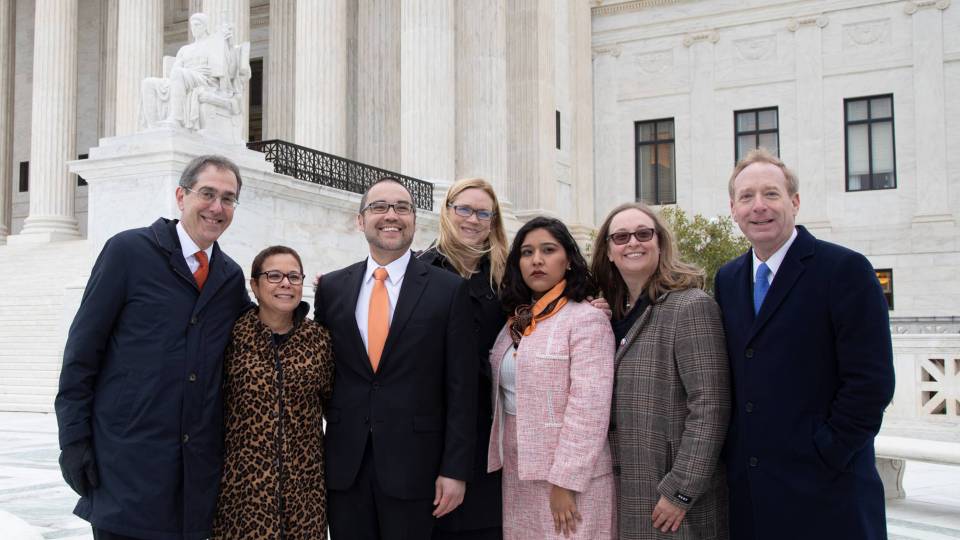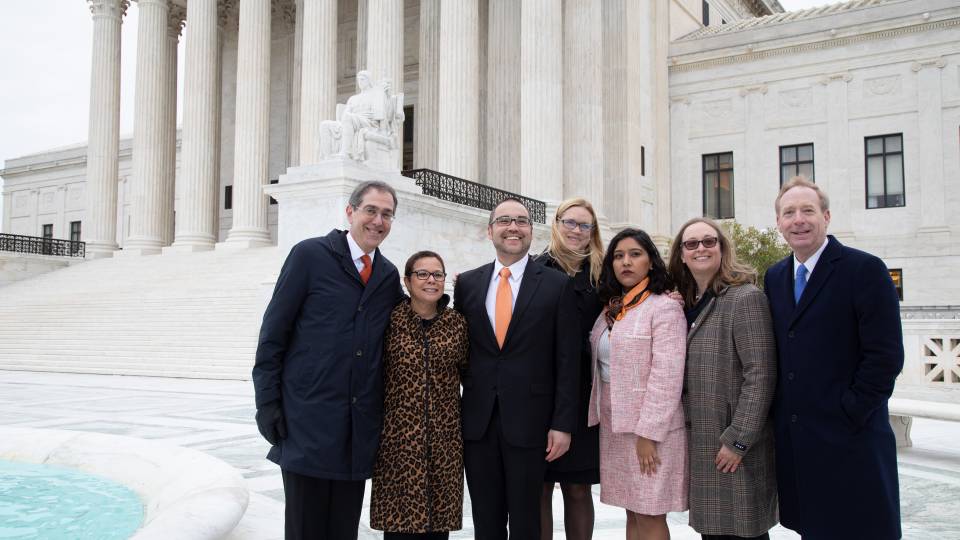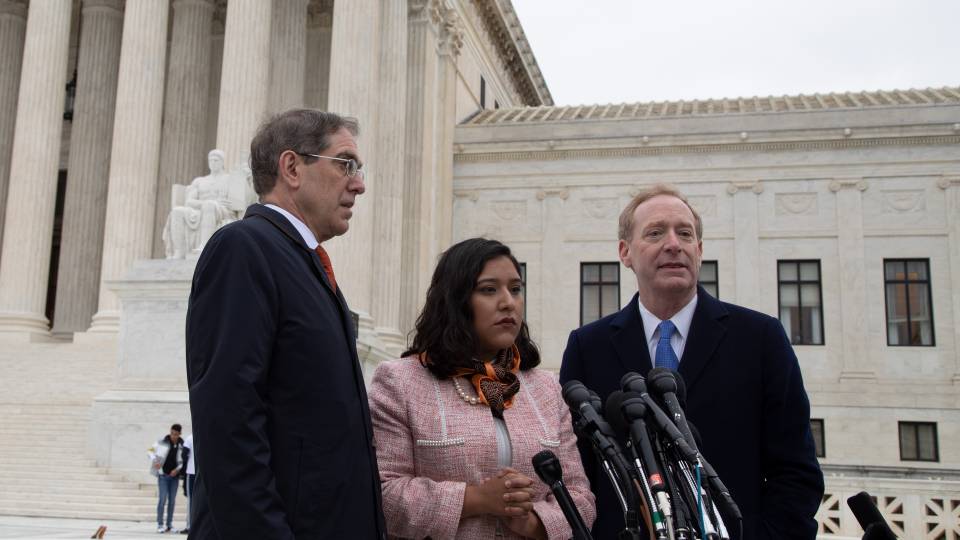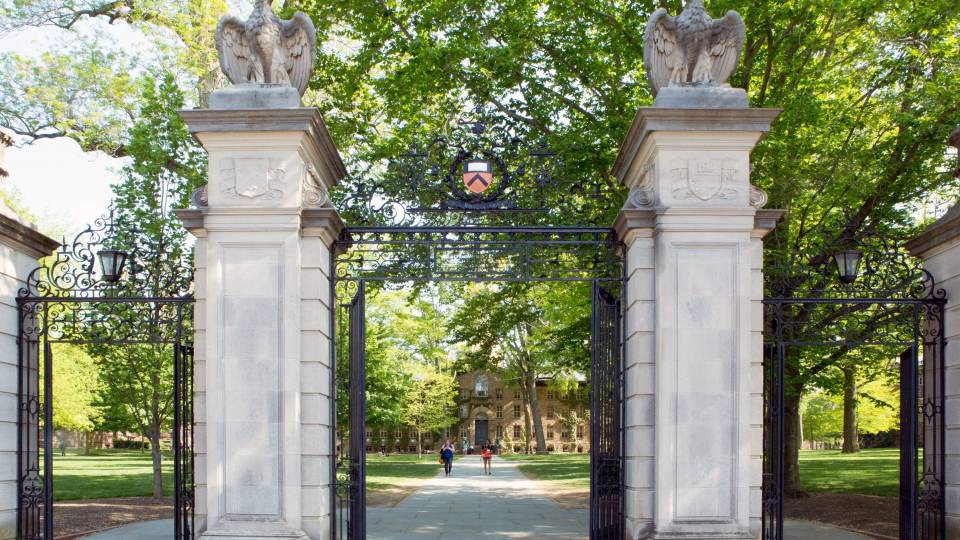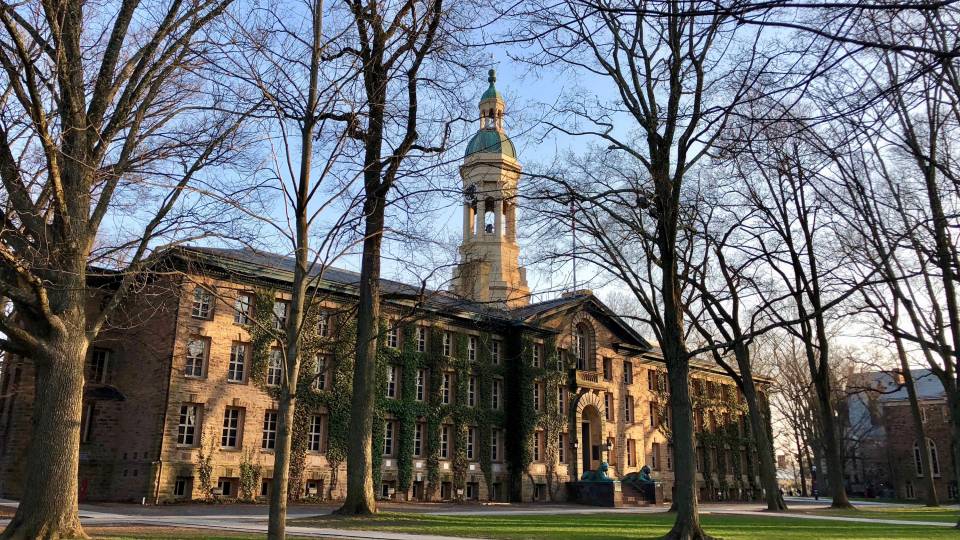Princeton University, one of its students and Microsoft have mounted a legal challenge to the federal government’s termination of the Deferred Action for Childhood Arrivals (DACA) program as announced on September 5, 2017. The complaint, filed on November 3 in federal court in Washington, D.C., alleges that DACA’s termination violated both the United States Constitution and federal law.
The Princeton undergraduate bringing the legal challenge, Maria De La Cruz Perales Sanchez, has been a beneficiary of the DACA program. The complaint explains that the termination of DACA severely harms her and other DACA-enrolled young people (known as “Dreamers”), and “the employers and educational institutions that rely on and benefit from their contributions.”
The DACA program permits undocumented students who arrived in the country as children to obtain protection from deportation, allowing them to continue their studies or work in the United States. To demonstrate their eligibility for the program, Dreamers had to provide the government with detailed and highly sensitive personal information, pay a significant fee, and submit to a rigorous background check.
The complaint says that Princeton “will suffer the loss of critical members of its community” if DACA’s rescission is left to stand. Princeton’s DACA students “are among the most accomplished and respected students studying at the University" — they “study in a diverse array of fields,” “serve as mentors and peer advisors, class representatives in student government, and as community organizers and campus leaders,” and “have earned numerous academic honors, awards, and fellowships.” The presence of the Dreamers on campus “helps fulfill Princeton’s educational mission,” in which “diversity and inclusion” play a central role.
At Microsoft and its subsidiary LinkedIn, at least 45 DACA recipients are currently employed. Dreamers “serve in critical roles,” including as software engineers, financial analysts, inventory control experts, and in core technical and operations positions and other specialized functions and internships. The company has made significant investments in “recruiting, retaining and developing” employees “who are Dreamers,” and it has “significant interests in retaining the Dreamers it employs, and in reaping the benefits of their talent over time. It has conducted its business operations on the understanding that these individuals would continue to be eligible to work at the company.”
In the lawsuit, the plaintiffs claim that the government’s actions violated the Due Process Clause of the Fifth Amendment of the U.S. Constitution, including its guarantee of equal protection under the law, as well as the Administrative Procedure Act. The complaint asks for a declaration that the DACA program is lawful and constitutional, and for an injunction that both stops the administration from terminating DACA and prevents the government from using the information provided by Dreamers against them or for purposes of immigration enforcement.
In a statement on DACA last November, Princeton President Christopher L. Eisgruber said that “[i]n a country that respects the rule of law, every person and every official, no matter what office he or she may hold, is subject to the law and must respect the rights of others.”
“The University is now invoking that principle in court to protect the rights of individuals within its community, as well as its strong interest in maintaining an excellent, diverse and inclusive educational environment,” said Princeton University General Counsel Ramona Romero. “As one of the nation’s leading private universities, Princeton joins the many voices — individuals, states, institutions of higher learning, organizations of all kinds — in seeking to remedy the injustice done to the nation’s Dreamers, who only seek the opportunity that America has afforded so many others before them.”
In September, Eisgruber sent a letter to congressional leaders urging them to place the highest priority on legislation that would provide immediate and long-term protection for young people enrolled in or eligible for the DACA program. In August, he wrote to President Trump, urging him not to repeal DACA. Last fall, he joined a group of what is now more than 700 college and university presidents who have signed on to a statement supporting the program.
On November 1, Princeton joined 18 other colleges and universities in submitting a friend-of-the-court brief in U.S. District Court at San Francisco in related cases challenging the federal government's termination of DACA.
Microsoft has been a proponent for a lasting solution to protect DACA beneficiaries, joining others in urging Congress to quickly pass bipartisan legislation. The company has helped to build business sector support for DACA relief and to establish the Coalition for the American Dream. On November 1, Microsoft and over 100 companies, including Facebook, Chobani, Levi Strauss & Co., IBM Corporation, Verizon Communications and others, filed a friend-of-the-court brief in U.S. District Court at San Francisco in five cases challenging the termination of DACA.
“The 45 Dreamers employed by Microsoft today are making countless contributions in our company and community,” said Microsoft president Brad Smith. “They have grown up in the United States, attended our schools, paid taxes, bought houses and started families. They also completed the government’s rigorous DACA application process before they could obtain work authorization to join our company. It’s critical that we don’t lose their tremendous talents.”
Other companies have stated their support on the issue, including Univision Communications Inc., Google, Spotify, Apple, IBM Corporation and others.
